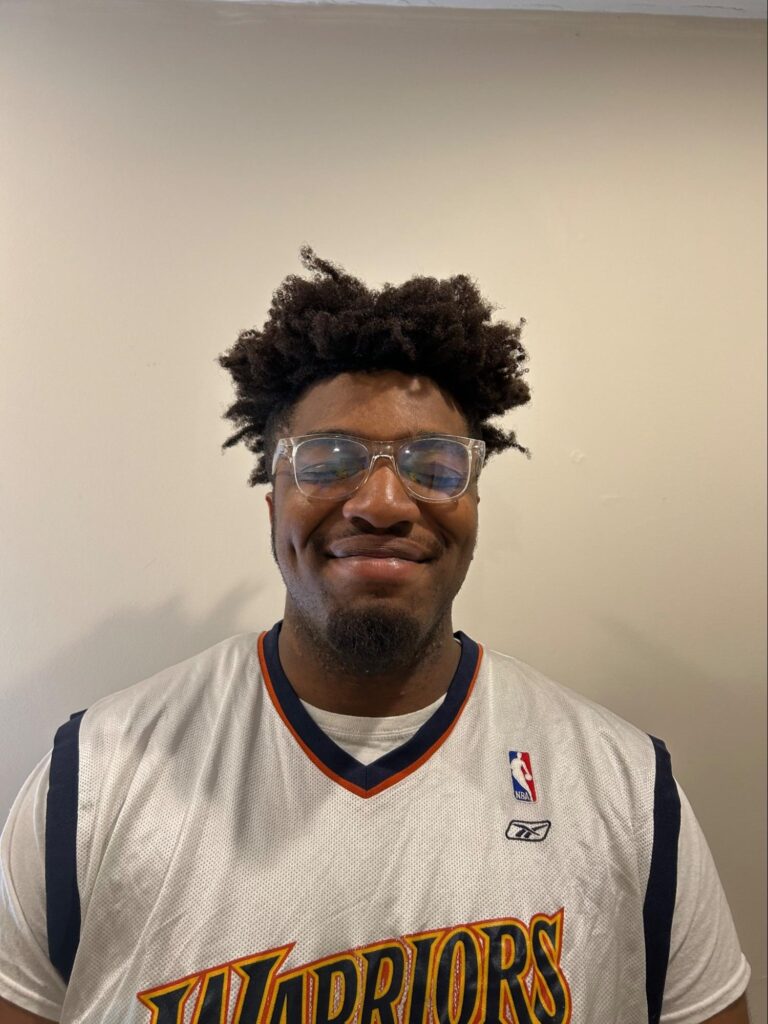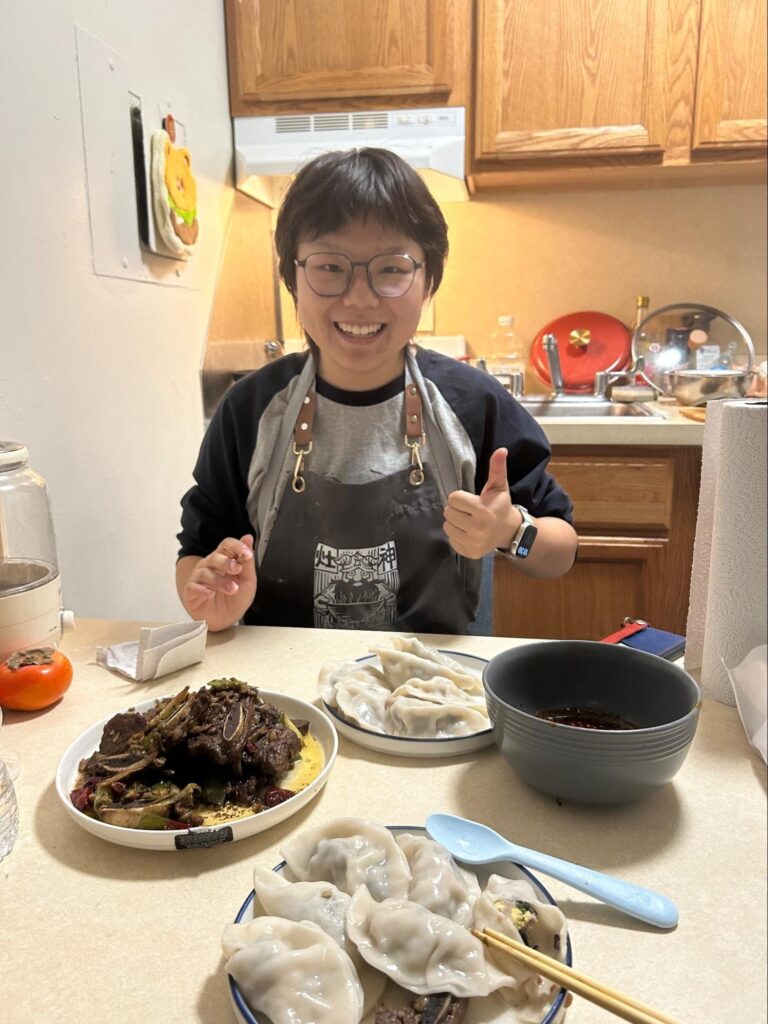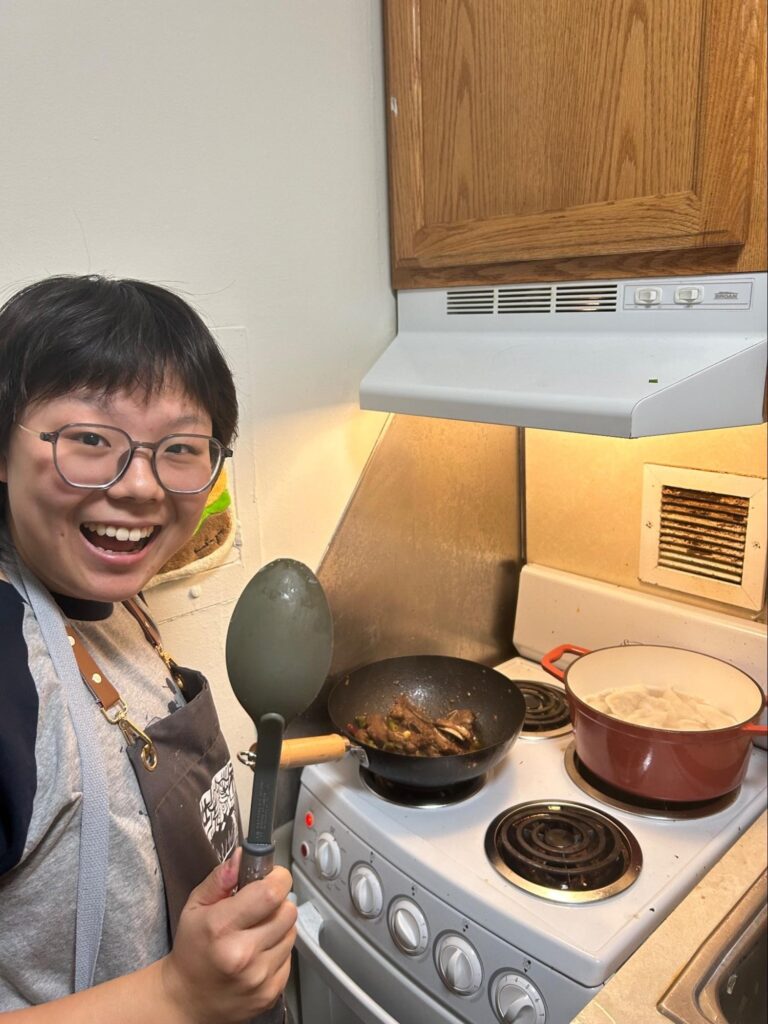By Adriana Alfaro Liendo
My name is Adriana Alfaro and I am the Global Engagement and Intercultural Learning Student Assistant in the Fries Center for Global Studies. This is the second part of an interview series that I decided to give a voice to people at Wes whose stories or perspectives are unique, special, and uncommon. I decided to ask them about their backgrounds, identities, and their experiences at Wes.
Manuela Zárate, FLTA
Manuela is one of the Spanish Foreign Language Teaching Assistant of the academic year 2024-2025. She was born and raised in Bogotá, Colombia, and something that makes her life different from others not only here at Wesleyan, but also in Bogotá, is her skin.
Manuela was diagnosed with atopic dermatitis when she was seven years old. Atopic dermatitis is a skin condition that causes dry, itchy, and inflamed skin and is usually common in young children but can occur at any age. Because of this condition, Manuela was taken to the dermatologist, and the medical system in Colombia put her on treatment. Creams were part of her daily life because she was trying to hide her condition; creams helped her a lot for many years. Skin is the biggest organ of the body, meaning that everyone can see it. When Manuela was growing up, she wanted to hide because people looked at her and made comments about her skin. ”I still remember when someone said that I have leprosy.” Manuela was affected not only physically, but also psychologically and emotionally. She mentioned that the week has seven days; she was good for five of the seven days. She got tired when she turned twenty years old, and she decided to quit the creams. She was tired of being mad and feeling bad all the time.
In 2020, the pandemic came; she thought that would be a good time to leave the creams behind, and she started to research her condition. During this research time, she discovered an indigenous doctor, and she began to listen to him. He told him that she had to heal from the inside in order to heal the outside. “Listening to music and leaving the creams will help you to heal.” She not only listened to this doctor, but also decided to live with him for a week. She was not sure about what she was doing, but she was sure of something: she wanted to quit the creams.
When Manuela left the creams, she started to notice how her skin deteriorated. She thought that she would never be able to recover. She started to feel really weak in many aspects because leaving the creams made her feel itchy all over. She could not sleep during the night, and she started to lose weight, even though she ate normally. At one point, she thought that she would die.
Initially she had decided to go to Putumayo, an Amazonian region in Colombia, to find Indigenous help for one week, but ended up staying there for a whole year. She discovered on the internet that her condition was more common than she thought. Atopic dermatitis is a condition that happens to not only people in Colombia but also in Australia, the United Kingdom, Argentina, Japan, and Costa Rica. In fact, she realized that she has is not atopic dermatitis, but topical steroid withdrawal syndrome. She started to connect with people who have the same syndrome, and she realized through this connection and indigenous help that the treatment that she got was only for four years and not for almost fifteen years.
This syndrome has been recently identified, approximately six to ten years ago, and not recognized as it should be. However, she finally understood what was going on with her and felt relieved.
On the basis of the activism in communities in Australia and the United Kingdom, it have been recognized as a syndrome. Sadly, if you go to a dermatologist in any country in Latin America and you tell the specialist that you have topical steroid withdrawal syndrome, they will tell you that you are crazy.
In today’s day, the fight to alert the world about this situation still exists, and Manuela is one of those people who is trying to make a change, and telling her story is a step towards change.
Brandon Forde ’25

Brandon was born and raised in Brooklyn, NY. However, he is not the typical New Yorker; his mom is from Jamaica, and his dad is from Barbados. He is a Caribbean mix; even though he is not African American, he says that all black people are united. In Brooklyn, he attended a predominantly white school, where he felt different from the others. He was more energetic, more authentic, and more confident, and he thinks he was like that because of his background. He was described as a gentle guy.
Experience at Wes
When he got to Wes, there was not a lot of diversity, but he says that now there is a decently diverse percentage of diversity. “There are a lot of people from Asia and a lot of black people.” When he was growing up, he discovered a passion for cooking, and now he has a restaurant on campus, Mystery Munchies, where he spreads his love for cooking to other students. He also mentioned his disgust with the term “POC”; he says that it’s like “reverse segregation”.
Why Sociology?
He went to Wes to do Economics as a major and Sociology as a minor, but with time he realized that Economics was not for him and decided to do Sociology as a major because he can learn about people and study society. “Sociologist professors care about you, care about students.”.
Liang Liang 26’
Most of the Asian students who come to the United States have to change their names because people cannot pronounce them correctly. This is not the exception for Liang Liang. Her real name is Quingya Liang. “We have to change our names when we already have one. It’s ridiculous; it’s like having two identities.” Quingya Liang was born and raised in Anhui, China, which is close to the city of Shanghai.

Experience at Wes
In the beginning, Quingya had problems with adaptation; as an international student, she struggled not only with food, norms, and her English when she came to the United States. “I had nightmares that people could not understand my English.” However, she started to do Theater, and it was her cure and medicine for all her insecurities about her English. Quingya’s first was the Actor’s experience, and she described this class as making connections and building community in the space with other students.
Why Theater and IDEAS?
Quingya has loved acting since a very young age. When she was growing up, her mother played with her to be an actress, but there are not a lot of opportunities in China to have a career in the theater field. She came to Wes with the idea to do Psychology because not of society or even her parents, but because she wanted to make people happier. She started to take Psychologist classes, and with time she realized that those classes wouldn’t be able to make people happier; instead, she was just learning how to tell people to get used to the world and society. Another valid and important reason she decided to stop doing Psychology was because she was getting Ds in almost all of her exams. With IDEAS, her father is an engineer, and after a long time of working for a company, he decided to quit and open his own business. Her father was an influence when she was growing up for her to create and build new things.

Food
When she was in elementary school, teachers gave an assignment to kids to cook for their families in order to show love for their parents. “You cook because you love someone.” In China, females cook more than males. Her grandmother and mother cook really well because it is their responsibility to supply the family with food. She cooks because she is satisfied when she does something. She also pointed out that she likes to cook for people because she feels great when they smile because of her food. In fact, during our interview she cooked for me, and I smiled because while she was cooking she was transmitting her happiness.
Quotes from the student:
“20 is your best age. Try everything, and do not be afraid to fail; everyone is going to fail.”


